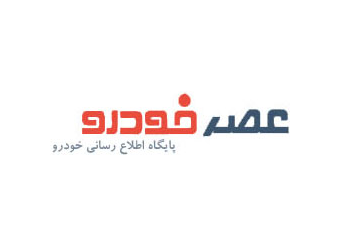
- Wednesday 29 July 2015 - 16:18:00
Peugeot faces snub for return to Iran
Asre Khodro: PSA Peugeot Citroen faces a rough ride for a return to Iran as major automakers are racing to grab a share of the Middle East’s largest auto market.
Reporting "Asre Khodro", Iran is furious at the French car maker for withdrawing from the country under US pressures which, according to the managing director of Iran Khodro, idled a large production line in 2012.
“After the sanctions, Peugeot left the Iranian market in an unwise and ungracious move, leading to the layoff of more than 8,000 workers only in France,” Hashem Yekke-Zare said.
“Hence, Peugeot must know that it has to account for its past behavior. Moreover, at least for the time being, it must not rest assured that an agreement prepared for cooperation will be definitely signed and if it is signed, the company will not be our main partner.”
Yekke-Zare said several companies have indicated their interest in cooperation, but Iran will take its national interests into account and choose a partner which is strong and committed to its obligations.
Peugeot was lured into leaving Iran by General Motors with promises of a share in its market which the Detroit-based company didn’t live up to. The French automaker slammed the door in the face of Iran Khodro, its second biggest market by volume, after 23 years of partnership.
Yekke-Zare indicated that Renault could replace Peugeot as Iran Khodro’s main partner. He said his company has been in direct negotiations with Renault since a year ago for production of supermini Clio 4 and mini-crossover Captur and Kwid cars.
“Kwid is a relatively low-cost car which could be a match to Pride (supercompacts in Iran), with plans to produce 150,000 units a year,” Yekke-Zare said.
Renault introduced its first-generation no-frills Logan sedans to Iran to produce 500,000 units a year but sales have dwindled under sanctions.
Yekke-Zare said the car maker has produced 400,000 units so far at maximum, adding supplies of the model, called Tondar in Iran, will continue until the end of the current Iranian year in March 2016.
Renault has $562 million of funds stuck in Iranian banks under the sanctions. The company is reported to be weighing purchase of stakes or manufacturing plants in Iran.
On Wednesday, French Foreign Minister Laurent Fabius arrived in Tehran to "revive relations" following the landmark conclusion of nuclear talks. France's main business lobby group, the Medef, is also sending a delegation of about 80 firms to Iran at the end of September.
The sanctions mostly benefited Chinese automakers which moved in to fill the void, but Yekke-Zare said they would face a hard time with the return of big international companies.
“The Chinese used the opportunity to enter the Iranian market but their products cannot compete with European cars in terms of quality and technical features.”
The official said Chinese automakers control only five percent of the Iranian market at maximum but they have to review the quality and prices of their products in order to stay.
“At present, there is a saying in the market that if you buy a Chinese car, you will be its first and last owner,” Yekke-Zare said.
- Peugeot
France's PSA suspends joint ventures in Iran to avoid U.S. sanctions
The French have never broken the pledge
Peugeot has to procure 30% of parts for Algeria from Iran
Iranian Parts Makers Asked to Collaborate in Peugeot’s Algeria Venture
Lack of Iran Khodro Capital Impedes Peugeot Plans
Iran is the place for peugeot to jump the platform
As Iran Sales Grow Peugeot Profits Rise to €2 billion
PSA First-Half Profit Jumps as It Sells More Expensive Cars
Peugeot's China, Europe sales decline offset by Iran
Iran JV to Launch Peugeot 508
France’s Peugeot, Total Looking for Stronger Presence in Iran
Peugeot 2008 Production Line Launched in Iran
IRAN - Peugeot Team Tours Tabriz-Based Manufacturers of Car Spare Parts
Peugeot Team Tours Tabriz-Based Manufacturers of Car Spare Parts
PSA to carry out Iran plans despite US threats
Peugeot, Citroen Will Uphold Localization Segment in Iran
Car Thieves Love Iran-Made Peugeots
IDRO signs 19 MOUs with giant automakers in post-sanction era
Peugeot Deliveries Propelled by Sales in Iran
40.9% Jump in Iran Car Production y/y
PSA SAIPA finalise joint-venture in Iran
Peugeot targets 150,000 vehicle sales in Iran in second half
Peugeot to try for making Iran its manufacturing hub in Middle East, Africa
IKCO, Peugeot to release 1st joint product within months
Our new contract is different
Peugeot-Citroen announces €400 mln venture with Iran Khodro
PSA Group signed the final contract with its Iranian partner
Our new contract is different
Peugeot to Compensate for Iran’s Losses in New Contract: Minister
Iran says Peugeot would pay compensation for withdrawal during sanctions
French car-maker Peugeot returns to Iran
Peugeot to fully recompense Iran
FCA, PSA, Renault eye deals as Iran president tours EU
Iran's President says Peugeot, Renault deals possible on Europe trip
Peugeot likely to finalize Iran deal Wed.
Iran Khodro, Peugeot Reach Preliminary Deal to Produce Cars
French carmakers duel over Iran
Controversial Vehicle Price Surge in Iran
IKCO management handed over to consortium of non-governmental shareholders
Iran's government approved car import after four years
$2 Billion Aid Package to Bolster Automotive Industry
Renault sales decline 6.7% in first half of 2019
-
FIAT cars will be manufactured in Salafchegan, Iran
Car, mobile price fluctuations in Iran puzzling people
IKCO, Azad University Sign R&D Agreement
When will Azerbaijan start producing Peugeot 207?
Iran Annual Auto Output Report: 2018-19
Automotive Industry has exceeded the targets with “Automechanika Istanbul” which the World's 3rd Largest Fair!
Sout Korea’s auto exports down 1.6% in Feb.
Renault to Return to Iran: Deputy Minister
Chery's luxury brand will soon be on the market
Warm start for arrizo6 in Ahwaz







